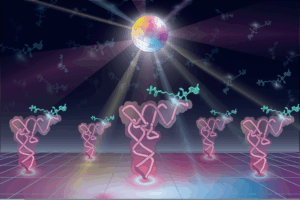
C-GEM researchers developed a novel method called 3-Prime Adenosine-Retaining Aminoacyl–tRNA Isolation (PARTI), which determines precisely how much of a cellular tRNA is acylated, what it is acylated with, and whether it has been acylated once or twice. PARTI is an essential verification tool for optimizing the incorporation of non-canonical and expanded/alternative backbone monomers into proteins using genetic code expansion (GCE) in cells.
This work was led by Meghan Pressimone (graduate student) in collaboration with Dr. Carly Schissel (Miller Postdoctoral Fellow), Isabella Goss (C-GEM SURP scholar, 2023), Dr. Cameron Swenson (UC Berkeley PhD, 2024), and Prof. Alanna Schepartz.
Abstract: We describe a new assay that reports directly on the acylation state of a user-chosen transfer RNA (tRNA) in cells. We call this assay 3-Prime Adenosine-Retaining Aminoacyl–tRNA Isolation (PARTI). It relies on high-resolution mass spectrometry identification of the acyl-adenosine species released upon RNase A cleavage of isolated cellular tRNA. Here we develop the PARTI workflow and apply it to understand three recent observations related to the cellular incorporation of non-α-amino acid monomers into protein: (i) the origins of the apparent selectivity of translation with respect to β2-hydroxy acid enantiomers; (ii) the activity of PylRS variants for benzyl derivatives of malonic acid; and (iii) the apparent inability of N-Me amino acids to function as ribosome substrates in living cells. Using the PARTI assay, we also provide direct evidence for the cellular production of 2′,3′-diacylated tRNA in certain cases. The ease and simplicity of the PARTI workflow should benefit ongoing efforts to study and improve the cellular incorporation of non-α-amino acid monomers into proteins.